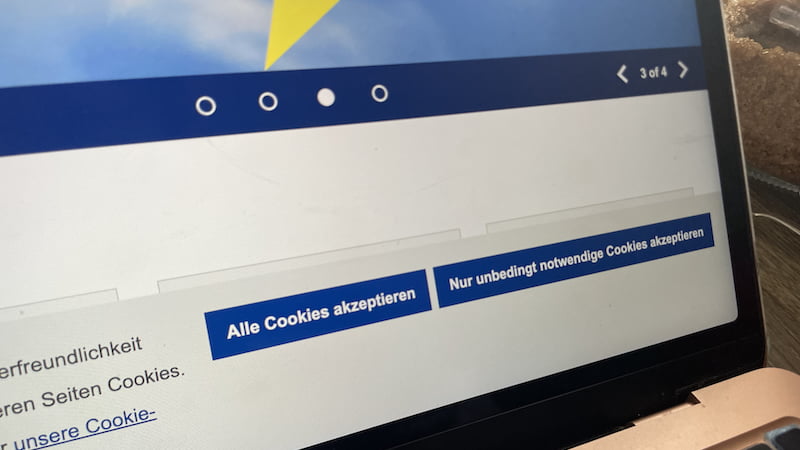
The EU Commission wants to take action against the display of annoying cookie banners on websites. In the future, consumers will only have to give their consent to the processing of their data once a year. The backgrounds.
“We use cookies to improve the user-friendliness of the website.” This is how the text in cookie banners begins. They appear when you open a website and ask users for permission to process personal data. This query has been completely normal since the new General Data Protection Regulation (GDPR) from May 2018 at the latest.
Nevertheless, many users feel disturbed by the pop-up window. And the EU Commission apparently finds the practice so annoying that it now wants to take action against it.
EU: Cookie banner should only appear once a year
Among other things, the EU Commission is bothered by the fact that website operators also use tracking technologies to store users' Internet behavior and forward personal data to a large number of companies. The constant request to accept cookies also means that consumers increasingly give their consent automatically.
As EU Justice Commissioner Didier Reynders recently told the World on Sunday explained, consumers should therefore only be asked to accept cookies again one year after the last query.
“The use of cookies to process personal data cannot, according to the law, take place without the express consent of users,” he explained. However, that doesn't mean that surfing the Internet should end up being a nuisance.
According to Reynders, the EU Commission also wants to address the growing cookie fatigue among online users. At the same time, we want to help consumers better understand advertising models and choose advertising that is less intrusive, Reynders continued.
Meta, TikTok and Co. should commit to change
Initially, the change will take place as part of a voluntary commitment from internet giants such as Meta, TikTok, Microsoft, Apple and Amazon. They should voluntarily agree to the so-called Cookies Pledge and therefore better inform their users. This is intended to offer protection against intrusive declarations of consent.
In addition, the voluntary commitment stipulates that users of a website receive detailed information about the business model of the respective company in a clearly visible place in advance – especially when it comes to financing the website and what the personal data will be used for.
Justice Commissioner Reynders is confident that after Meta, TikTok and Co., smaller providers will also follow suit in the future. The voluntary initiative could open the doors to online practices that would then better protect consumer rights.
Also interesting:
Source: https://www.basicthinking.de/blog/2024/01/02/cookie-banner-eu-kommission/


